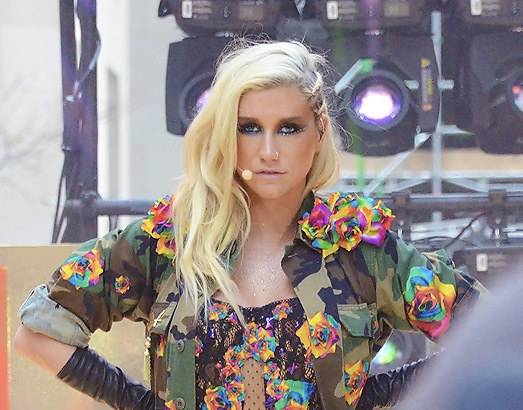Analyzing the court case that gained the attention of both the media and the world
Have you ever wondered what happened to celebrities who seem to disappear from public consciousness? Maybe they’ve retired, wanted to raise a family out of the spotlight, or have moved on to other projects.

This is not the case for Kesha, or as we’ve known her for most of her career, Ke$ha. The reason she hasn’t released music for over three years, in fact, is far more sinister.
Since October 2014, she’s been embroiled in a contentious legal battle with her producer, Dr. Luke, over allegations that he emotionally and sexually abused her over the 10 years they’ve worked together. Last week, a New York Supreme Court denied Kesha’s request that she be released from her contract with Kemosabe Records, a subsidiary of Sony Music Entertainment, which is owned by Dr. Luke. Essentially, this means that Kesha will be forced to continue to work with her alleged abuser, and he will forever profit from the royalties generated from her music.
Pictures of Kesha after the verdict show a devastated woman, and not the confident singer-songwriter the world has come to know. Her career began when she was 18, and apart from her two albums, she has co-written songs for Miley Cyrus, Miranda Cosgrove, and Britney Spears, among others.
Kesha’s music has many themes, including individuality, magic, rebellion, and most famously, partying, but there is more to her than meets the ear. She obtained a near-perfect score on her SATs in high school according to the Huffington Post, and aside from her music career, she has become renowned for her LGBT and animal rights activism. As of 2016, Kesha has received 64 award nominations, winning 15, and has sold over 60 million albums worldwide.
But with fame often comes a dark side. In the winter of 2014, Kesha underwent treatment for bulimia, which her mother said was the result of Dr. Luke pressuring her to lose weight according to People.
When I first heard about this, I was saddened, but not surprised. Watch the music video for her and Pitbull’s song “Timber” and you’ll see just how thin she got. It was clear that whatever was happening to her was bad.
What is perhaps most unsettling about the case is that this is yet another instance where powerful men seem to have the upper hand. Dr. Luke is one of the biggest players in the music industry today, having produced and written dozens of hit songs and albums within the past 10 years. He’s probably been somehow involved in the Top 40 song you’re listening to right now. And as the Bill Cosby and Jian Ghomeshi cases have shown, he’s not the first entertainment heavyweight to get entangled in abuse allegations and unfortunately won’t be the last.
Whether or not Dr. Luke is guilty of abusing Kesha, the overwhelming support she has received since the ruling is incredibly touching, and perhaps revealing. Several musicians, including Lady Gaga, Tegan and Sara, Lorde, Halsey, and Miley Cyrus tweeted in solidarity, while Taylor Swift donated $250,000 to help cover Kesha’s financial fees according to Rolling Stone. Adele voiced her support during an acceptance speech at the 2016 Brit Awards, and Jack Antonoff and Zedd offered to be her producers.
Even those outside the music world, including George Takei, Anne Hathaway, and Mariska Hargitay rallied to her defense. Kesha may have lost the battle, but Dr. Luke hasn’t won the war.
Ultimately, two things are certain—for now, Kesha must be under Dr. Luke’s label, and despite the court’s findings, only she and Dr. Luke know what really happened. And yet, while she is clearly upset with the outcome, I argue that something good will come out of this.
The truth always comes out in the end, but more concretely, the case has grown into something bigger than itself. It’s not only about rape culture, the (alleged) abuse of power, and the dark underbelly of stardom.
It’s also about how others will reach out to those who need help, and whether they do so through thoughts, words, or actions, they show that people care. As Kesha wrote in her first public statement since the verdict, “We’re all in this together. You are not alone.”




